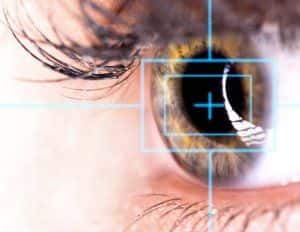Somewhere around the age of 40, most people’s eyes lose the ability to focus on close-up objects. This condition is called presbyopia. You may start holding reading material farther away, because it is blurry up close. Reading suddenly gives you eyestrain. You might wonder when manufacturers started
Read more
If you suffer from nearsightedness, farsightedness or astigmatism, you likely have a refractive eye error that causes light that passes through your cornea to bend, or refract, improperly, resulting in your vision problem. Fortunately, you might be an appropriate candidate for refractive surgery to improve or correct your vision.
One of the best-known refractive surgical procedures is LASIK (laser-assisted in situ keratomileusis), which involves the use of laser energy to reshape the cornea (the clear, round dome at the front of your eye), thereby correcting your refractive error. In addition to LASIK, there are several other types of refractive surgery that can be performed to improve or correct the following vision problems:
- Nearsightedness (myopia). For those with myopia, close objects look clear, but distant objects are blurry.
- Farsightedness (hyperopia). For patients with hyperopia, distant objects look sufficiently clear, but close objects are blurry.
- Astigmatism. With astigmatism, the cornea or lens is not smooth or evenly curved, so the eyes do not focus properly.
- Presbyopia. This is an age-related eye condition that makes it harder to see images or objects up close.
-
Presbyopia
Category: We Can Help With, Refractive Disorders
-
Myopia
Category: We Can Help With, Refractive Disorders
Myopia, or nearsightedness, means that your eyes can see close objects clearly but struggle to see things in the distance. Nearly 30 percent of Americans are nearsighted. This condition usually develops in children and teenagers, up to about the age of 20. A teacher or parent might notice a child squinting
Read more -
Astigmatism
Category: We Can Help With, Refractive Disorders
A normal cornea — the clear front covering of your eye — has a round curve, like a basketball. However, many people have an irregularly shaped cornea while others have an irregularly curved lens. Both cases can cause light that enters the eye to bend the wrong way, causing blurry vision. This disorder
Read more -
Hyperopia
Category: We Can Help With, Refractive Disorders
People with hyperopia, also known as farsightedness, can usually see objects in the distance, but their close vision is blurry. Symptoms of untreated hyperopia include: Difficulty concentrating on near work, such as reading Eye strain Headaches after reading or other activities involving close focus Aching,
Read more -
Types of Refractive Surgery
Category: We Can Help With, Refractive Disorders
There are several types of refractive surgery available to correct vision problems caused by refractive errors, including: LASIK (laser-assisted in situ keratomileusis) Custom or bladeless LASIK Photorefractive keratectomy (PRK) Laser epithelial keratomileusis (LASEK) Epi-LASIK Conductive Keratoplasty
Read more
Location
Find us on the map
Office Hours
Our Regular Schedule
Monday:
10:00 am-4:00 pm
Tuesday:
10:00 am-4:00 pm
Wednesday:
10:00 am-4:00 pm
Thursday:
10:00 am-4:00 pm
Friday:
10:00 am-4:00 pm
Saturday:
10:00 am-2:00 pm
Sunday:
Closed
